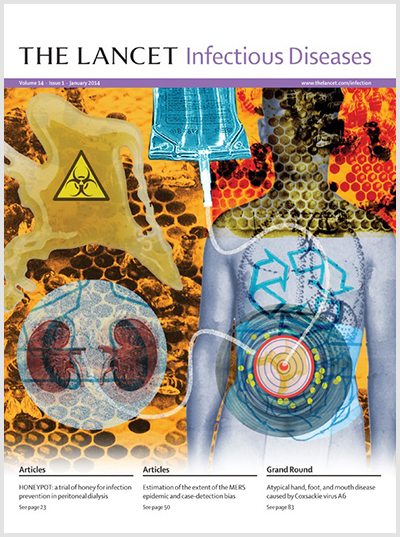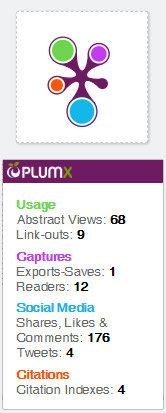Lancet Infectious Diseases — Lyme disease vaccination: safety first
In the Article by Nina Wressnigg and colleagues1 and the related Comment by Paul Lantos2 describing a novel Lyme vaccine, the authors attempt to avoid discussion of the side-effects of the previous Lyme vaccine, LYMErix (SmithKline Beecham, Pittsburgh, USA). This approach to safety issues bodes ill for the new Lyme vaccine candidate.
LYMErix was put on the market in 1998 and withdrawn by the manufacturer in 2002, ostensibly because of poor sales. However, the so-called poor sales were related to safety concerns raised in a class-action lawsuit by more than 400 patients who claimed that they developed Lyme-like symptoms after vaccination with LYMErix.3, 4 Subsequent studies showed that outer surface protein A (OspA), the antigenic component of Borrelia burgdorferi used to create both LYMErix and the new candidate vaccine, induced joint-reactive and nerve-reactive antibodies in animals and human beings vaccinated with the protein antigen.3, 4, 5, 6 Even more disturbing, other studies indicated that LYMErix induced reactivity against multiple target antigens that were never characterised, and these studies called into question the OspA specificity of the vaccine.7, 8 By withdrawing LYMErix when it did, the manufacturer avoided releasing phase 4 post-marketing data that probably would have shown increased side-effects related to the vaccine.9 The data have never been disclosed, and this lack of disclosure has fostered persistent patient mistrust of Lyme vaccine manufacturers.
Wressnigg and colleagues provide minimum safety data about the new OspA-based Lyme vaccine, whereas Lantos glosses over the “largely unsubstantiated safety concerns” about LYMErix. Adoption of this view by Lyme vaccine manufacturers, regulators, and promoters has shaken patient confidence in Lyme vaccines despite the fact that this patient population is generally pro-vaccination.10 Any new Lyme vaccine will need extensive safety testing, more transparency about side-effects, and improved patient communication on the part of the vaccine manufacturer to allay valid patient concerns about safety.4, 10 Let's hope that history does not repeat itself because Lyme vaccine manufacturers, regulators, and promoters once again underestimate or ignore justified patient concerns about Lyme vaccination risks.
RBS serves without compensation on the medical advisory panel of QMedRx Inc. He has no financial ties to the company. LJ declares that she has no conflicts of interest.
- Wressnigg N, Pöllabauer E-M, Aichinger G, et al. Safety and immunogenicity of a novel multivalent OspA vaccine against Lyme borreliosis in healthy adults: a double-blind, randomised, dose-escalation phase 1/2 trial. Lancet Infect Dis 2013; 13: 680–89.
- Lantos PM. Lyme disease vaccination: are we ready to try again? Lancet Infect Dis 2013; 13: 643–44.
- Stricker RB. Lymerix risks revisited. Microbe 2008; 3: 1–2.
- Smith P, Gaito A, Marks DH. Transcript of FDA Lymerix meeting, Bethesda, MD, January 22, 2002
- Souayah N, Ajroud-Driss S, Sander HW, Brannagan TH, Hays AP, Chin RL. Small fi ber neuropathy following vaccination for rabies, varicella or Lyme disease. Vaccine 2009; 27: 7322–25.
- Marks DH. Neurological complications of vaccination with outer surface protein A (OspA). Int J Risk Saf Med 2011; 23: 89–96.
- Molloy PJ, Berardi VP, Persing DH, Sigal LH. Detection of multiple reactive protein species by immunoblotting after recombinant outer surface protein A Lyme disease vaccination. Clin Infect Dis 2000; 31: 42–47.
- Fawcett PT, Rose CD, Budd SM, Gibney KM. Eff ect of immunization with recombinant OspA on serologic tests for Lyme borreliosis. Clin Diagn Lab Immunol 2001; 8: 79–84.
- Nardelli DT, Munson EL, Callister SM, Schell RF. Human Lyme disease vaccines: past and future concerns. Future Microbiol 2009; 4: 457–69.
- Smith P. Remarks to Vaccines and Related Biological Products Advisory Committee, Bethesda, MD, January 31, 2001.
About the journal
The Lancet Infectious Diseases was launched in August, 2001, and is a lively monthly journal of original research, review, opinion, and news covering international issues relevant to clinical infectious diseases specialists worldwide.
Reputation and Impact
The Lancet Infectious Diseases has an Impact Factor of 25·148® and ranks first among infectious diseases journals (2017 Journal Citation Reports®, Clarivate Analytics 2018). The Lancet Infectious Diseases is recognised for providing a global, authoritative, and independent forum for the highest quality infectious diseases research and opinion, covering such areas as the treatment and research of HIV/AIDS, antibiotic resistance, emerging infections, and public health.
















